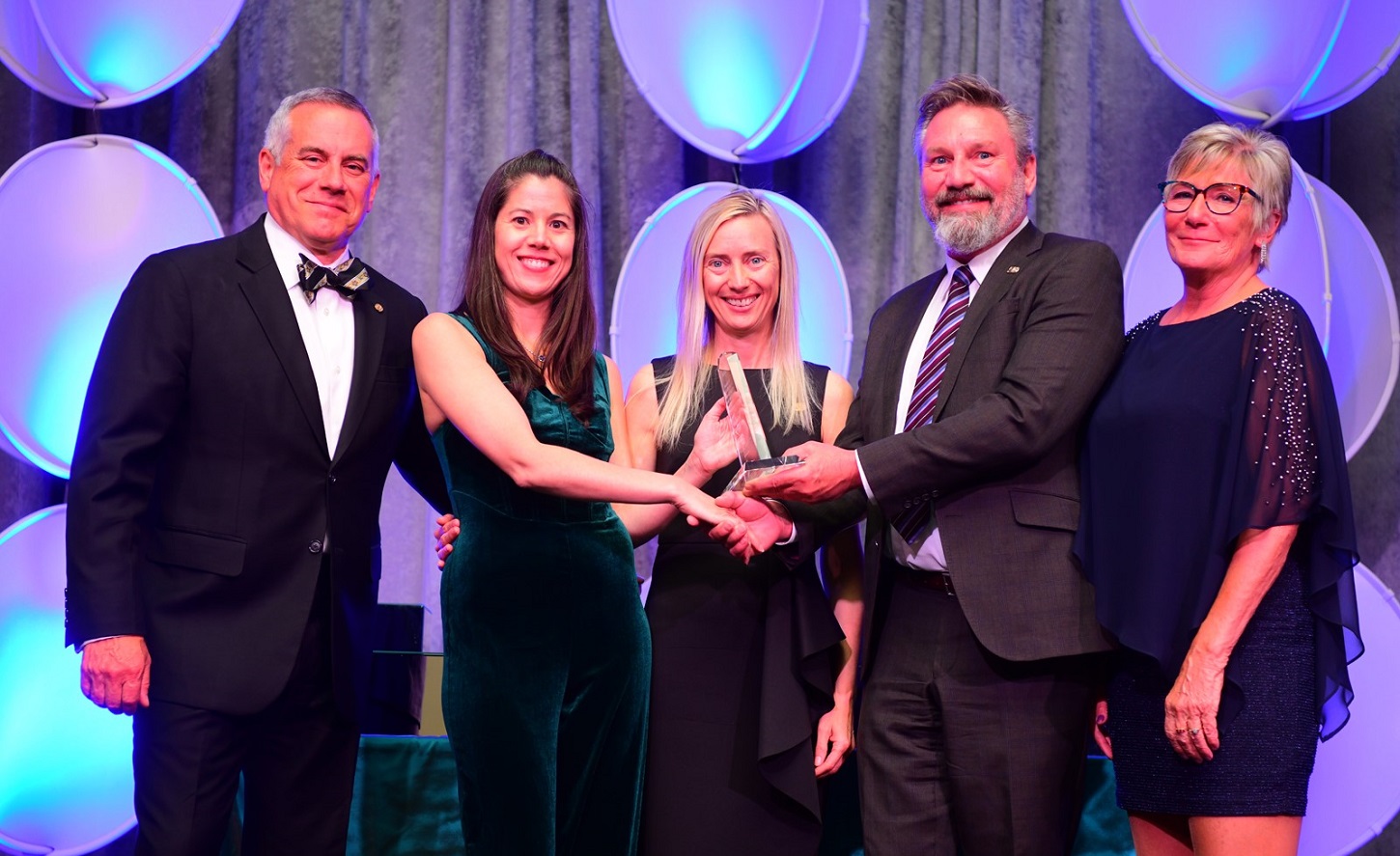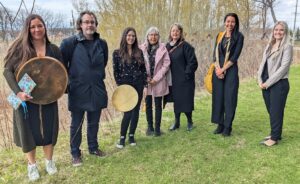Custom Care

Subscribe to Catalyst
Subscribe to get our magazine delivered right to your inbox
Related Articles
Subscribe to Catalyst
Subscribe to get our magazine delivered right to your inbox
Related Articles
When one size does not fit all. A look at Waypoint’s approach to structured psychotherapy.
There’s a specialty mental health hospital on the shores of Georgian Bay in Penetanguishene doing especially innovative work these days. In addition to its 301 beds, the Waypoint Centre for Mental Health Care is home to Ontario’s only high-secure forensic mental health program for patients served by the mental health and justice systems. The range of services covers acute as well as longer-term psychiatric inpatient and outpatient services for the region. Of late, their delivery of the Ontario Structured Psychotherapy (OSP) Program is receiving recognition for its ability to have a major impact.
I was honoured to present the group, which includes Jessica Ariss, Waypoint’s program manager, and Jeannie Borg, director, of system innovation at the Waypoint Centre, with the 2023 Award of Excellence in Mental Health and Addictions Quality Improvement from the Canadian College of Health Leaders in June. I asked the team about their approach to improving mental health outcomes.
Transformative care
The OSP offers publicly funded treatment for individuals experiencing depression, anxiety, and anxiety-related conditions by providing access to short-term, evidence-based cognitive behavioural therapy (or CBT), a form of care that helps people examine how they make sense of what’s happening around them and how these perceptions affect the way they feel.
Waypoint delivers CBT via partnerships with more than 20 organizations, meaning that people can access care in their communities rather than having to travel to a central hub. Through this model, the therapy is offered at no cost to clients. While it’s a highly effective treatment that improves symptoms and reduces the likelihood of mental health concerns becoming critical, Waypoint is far from the only organization offering CBT.
So what makes its program different and award winning?
Mind the gap
Waypoint won the award for its tenacity in addressing gaps in care. They did so by working to enhance access to CBT for priority populations, including Indigenous, francophone, and 2SLGBTQI+ individuals, which increased referrals to its programs. In one instance, Waypoint used its communications channels to promote the services to priority communities online and track the path from clicks to referrals. This part of the project took a wrap-around approach that covered training, communication strategies, and service modifications. Those modifications were informed by advisory circles that included patients and others with lived and living experience from various communities.

Members of the OSP Program and the Indigenous Health Circle, who worked together to adapt and enhance services for Indigenous clients: (from left) Charity Fleming, David Thériault, Jessica Ariss, Germaine Elliott, Leah Lalonde, Melissa Petlichkov, and Melissa Moreau.
For Indigenous populations, the Waypoint team worked with the Indigenous Health Circle, B’Saanibamaadsiwin, and the Barrie Area Native Advisory Circle to develop clinical protocols and integrated care pathways for CBT services. These were based on client feedback, research evidence, and a training course (offered by Wilfrid Laurier University) called Sacred Circle CBT — Mikwendaagwad, an Anishinaabemowin/Ojibwe word for “It is remembered, it comes to mind.” The Indigenous service pathway — called Minookmii or “sacred tracks upon the earth” — uses an adapted intake assessment process conducted by an Indigenous clinician and services that include spiritual healers. These Indigenous health promotion practices ensure that the perspectives and needs of priority populations are central to Waypoint’s service development and evaluation processes.
Data and demeanour
The organization tracks those processes using a dashboard system that takes quantitative and qualitative measures into account. Qualitative feedback is incorporated into clinical reviews as part of a continuous improvement loop. But Waypoint never lets its commitment to dashboards and data inhibit the personal touch. It has mastered the balance between analytics and empathy, making sure that the human elements and the patterns add up to meaningful care.
For example, a clinician will meet with a client to determine the service that best fits their needs. Whether it’s a sweat, a smudge, connecting with an Elder, or another Indigenous approach to care — or something else like clinician-assisted bibliotherapy — it’s about meaningful, involved, and engaged care. As one participant put it: “Within the first few minutes of our meeting, the therapist I was paired with created a space that felt safe for sharing. Her kindness, knowledge, and warm demeanour encouraged me to speak more honestly and openly about my anxiety than I ever had before. She shared information, statistics, studies, anecdotal evidence, and examples that helped me to see my health anxiety from a different perspective — and also to make me feel less alone in my struggles.”
It’s these differences that make the program stand out, something that Heather Bullock, Waypoint’s vice-president of partnerships and chief strategy officer, sees as notable.
“The program runs close to its vision,” she points out. In other words, these elements are not nice-to-haves; rather, they are embedded processes. “There’s no gap between the vision and reality,” she says, citing their work with colleges, clinics, and different cultural environments. “We’ve managed to come together as communities and as different types of providers under a shared goal. We’re building something the way we want it to be built — and that’s something that aligns not with what we need in the future but with what we need today.”
Resource: Webinar – E-Mental Health and Indigenous Partnerships in Suicide Prevention. How Kids Help Phone uses e-mental health services to break down access barriers to inform its suicide prevention work.
Further reading: The Catalyst: Conversations on Mental Health article. CBT For You and For Me.




